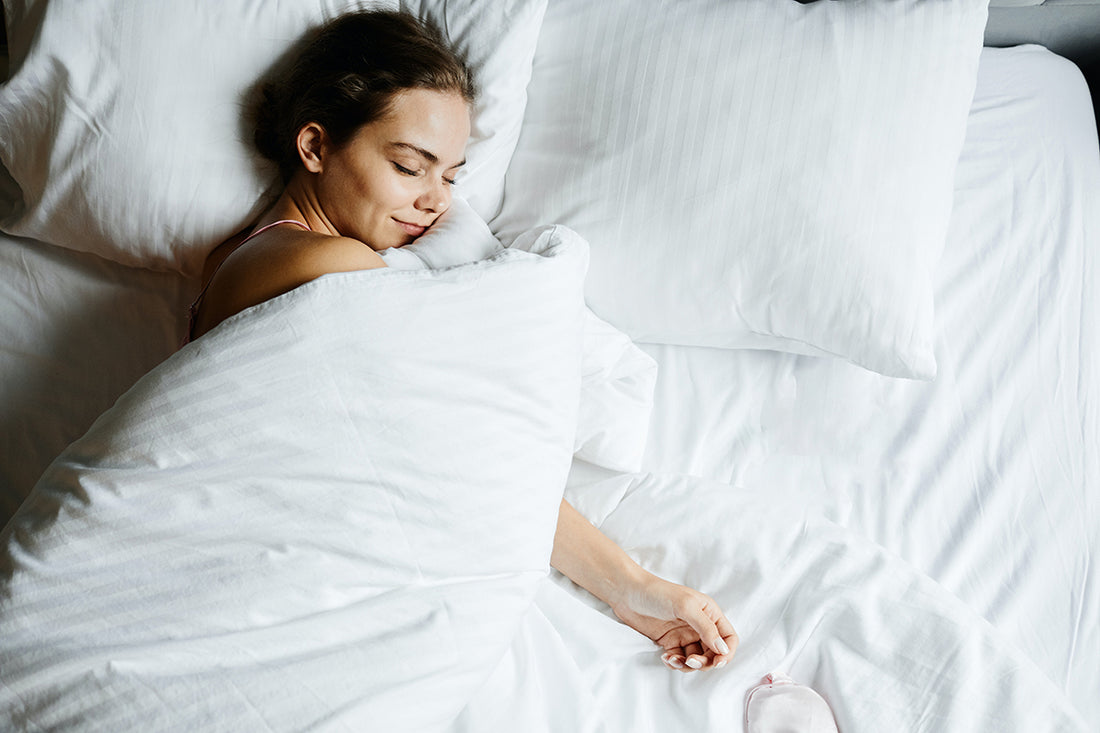
All You Need To Know About Beauty Sleep
What is beauty sleep?
Our skin is our body’s largest organ and our first line of defense against the environment. It is dynamic and undergoing a constant renewal process while mediating immune reactions, regulating temperature, sensation, and responding to environmental insults. "Beauty sleep" is a real phenomenon. This dedicated time is the chance our skin has to restore itself before it tackles the next day. Beauty sleep is an important component of skincare.
Skin's Responsibilities:
- First line of defense against the environment
- Mediates immune reactions
- Regulates body temperature
- Sensation
- Responds to environmental insults
How does sleep affect skin health?
Sleep is a time when our body is at rest without shifting or changing the environment around us. Although our body may go through its own temperature changes, sweating, or other challenges while sleeping, there is less stress on the skin’s health given the reduction in overall activity.
Our skin cells have mechanisms for repair and restoration. These functions occur overnight allowing our skin to improve and maintain its overall function. Overnight is also one of the best times to help your skin as it is a prolonged window of time where applied products can work. Lack of sleep contributes to alterations in your cortisol levels that can also negatively impact skin health.
What happens to the skin when we sleep?
While sleeping, our skin is in restorative mode. There is an increase in blood flow to the skin which helps bring in nutrients and take away toxins.
There was an interesting study that looked at the impact of smartphone usage on our skin and sleep. By decreasing the quality of sleep, the skin displayed more dryness, increased sebum production, and more scaling or flaking. Studies have also demonstrated a decrease in elasticity of the skin with poor sleep (think creepy skin and may contribute to an increase in pore size!). Clearly sleeping, or at least sleeping well, is associated with skin restoration and hydration.
What are the benefits of beauty sleep?
The circadian rhythm is the complex “behind the scenes” functions at play in our body 24 hours a day.
For our skin, the following have been noted:
- At night, our skin is its most permeable- this means that it is more susceptible to absorbing applied products. This is an ideal opportunity to use moisturizers and medications. The skin penetration for products is at its peak overnight.
- Blood flow to the skin increases later in the day and in the evening.
- Our healthy skin cells have an opportunity to repair and proliferate with their maximal activity in the middle of the night. Interestingly, some studies have shown that cancer cells slow progression overnight. This is an ideal scenario to help control the spread or growth of cancers.
- Natural steroid or cortisol levels decrease by the end of the day leading to an increase in the itch sensation at night for inflammatory conditions.
- Most importantly the repair of skin cells from UV-induced DNA damage is at its peak overnight.
How does the lack of sleep affect the skin?
The primary impacts on the skin from lack of sleep are impaired hydration of the skin, decreased elasticity, and decreased opportunity for DNA repair mechanisms to take place.
